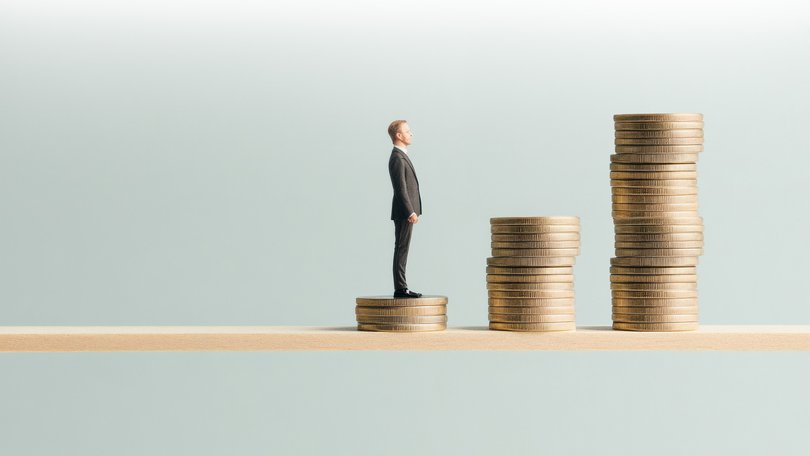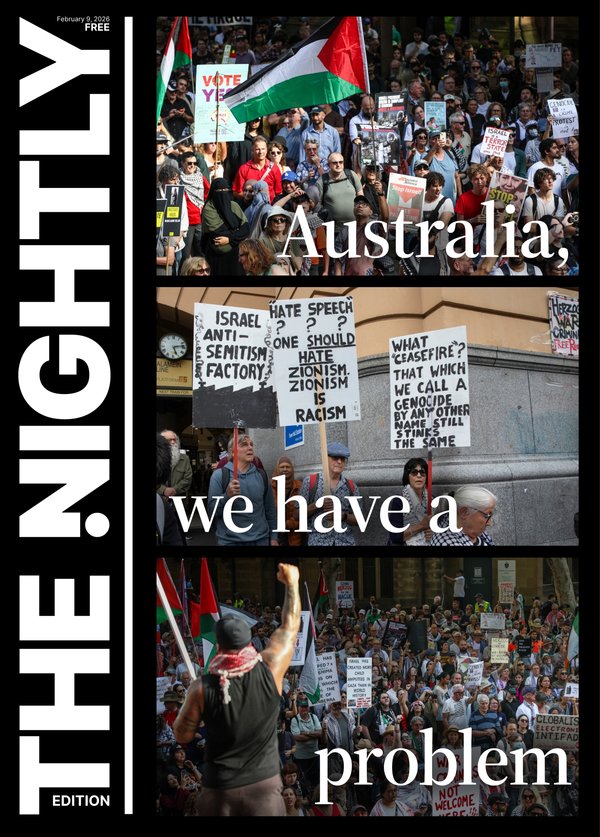JACKSON HEWETT: Five bold tax ideas that could rebalance the budget and close billion-dollar loopholes
JACKSON HEWETT: From capital gains to superannuation perks, economists say these five tax tweaks could fix long-standing flaws.

As the Government gears up for a productivity roundtable, some of Australia’s brightest minds were brought together last week in a roundtable convened by independent MP Allegra Spender to put forward suggestions to simplify the tax system.
Here are five that make sense.
Change the way the high income earners are taxed
Sign up to The Nightly's newsletters.
Get the first look at the digital newspaper, curated daily stories and breaking headlines delivered to your inbox.
By continuing you agree to our Terms and Privacy Policy.Australia’s top 5 per cent of income earners contribute around 37 per cent of all income tax revenue. Yet according to economist Greg Kaplan from the e61 Institute, the tax system becomes fundamentally flawed above the $180,000 threshold.
Drawing on anonymised ATO tax return data, Mr Kaplan’s research shows that once an individual earns above $180,000, the effective tax rate they pay depends more on how they earn their income than how much they make, with the wage slave the worst off.
“(Above that threshold) the absolute worst case that you could be in is to earn all of your income as an employee working for someone else,” Mr Kaplan said.
Mr Kaplan said Australia’s current tax structure becomes inefficient and inequitable beyond that threshold, largely due to distortions introduced by the 50 per cent capital gains tax (CGT) discount.
He found that 10 per cent of Australians earning over $390,000 pay a lower average tax rate than half of those earning $70,000, by exploiting the CGT concession, along with the different treatment of deductions and superannuation contributions.
Income tax avoidance in favour of CGT discount accruing activities risks “incentivising people to prioritise activities that are rewarded with capital gains over other forms of income even when they have a lower economic return,” he argued. The message it sends to young people is to be rich you should “choose a career where you can generate capital gains”.
“Strive for property development or funds management, not for engineering that matters for productivity,” he said.
He calls for cuts to income tax on middle and higher earners.
“We need to lower income taxes in the middle and the top of the distribution. We need to think harder about the message we are sending when we tax work as an employee at 47 per cent and passive income from unproductive investments at 23 per cent,” he said.
Reduce the capital gains tax discount
To lower taxes on middle and higher earners, Mr Kaplan said the capital gains discount should be reduced, something also supported by Luci Ellis, former chief economist at the Reserve Bank and current chief economist at Westpac.
“Reforming CGT will eliminate that incentive to make an income loss today, which you can deduct to the full marginal rate, and then get the capital gains at half marginal rate,” she said.
Miranda Stewart, Professor of Law at the University of Melbourne, argued that both capital gains and income flowing through privately controlled trusts and companies are under-taxed. “We need to tax capital gains more, and we need to tax privately controlled trusts and companies more,” she said.
Professor Stewart backed a modernised version of the Henry Tax Review’s “discount savings box” model, which would net off income and expenses from investments, then apply a modest discount — far less generous than the current 50 per cent.
“Maybe it should be 30 per cent or 25,” she said, citing the combined benefit of deferral and tax planning that allows many investors to significantly reduce their tax liability.
Reforming fuel excise for a cleaner, fairer system
Grattan Institute’s Alison Reeve argues that Australia’s century-old fuel tax system is no longer fit for purpose.
Originally introduced as a general revenue measure, fuel excise now delivers declining returns, thanks to improved fuel efficiency and the rise of electric vehicles.
Businesses using diesel face wildly different tax treatments: miners receive a full rebate, trucking companies get partial refunds, and ordinary drivers pay full excise and GST. Ms Reeve says the current system not only weakens incentives to decarbonise — by effectively subsidising diesel — but also fails to support efficient road use.
“For most of its life, this has been a tax that we have just had for general revenue,” she said, noting it contributes about 2 per cent of Budget revenue.
She warns that as more Australians switch to electric vehicles, it’s becoming increasingly possible to avoid paying the tax altogether — eroding the base and making the system less sustainable.
To modernise the approach, Ms Reeve recommends gradually replacing fuel excise with a road user charge that better reflects how much people actually use and wear down infrastructure. She also argues for reforming road funding to ensure more equitable treatment between urban and regional drivers, who often face longer distances and receive less investment.
Finally, she calls for aligning diesel tax credits with the carbon cost of emissions, saying current settings make it cheaper for businesses to stick with diesel rather than transition to cleaner alternatives.
“The pull away from net zero is stronger than the push towards it,” she said.
Reduce superannuation concessions
Brendan Coates from the Grattan Institute said the case for winding back superannuation tax concessions needs to be “back on the agenda,” with the cost to the Budget nearing $60 billion a year, more than 2 per cent of GDP, and growing. “More than two-thirds of those concessions go to the top 20 per cent,” he said.
The current system is not only inequitable, Coates argues but also ineffective at reducing pension costs.
“The cost of those tax breaks far outweighs the age pension savings they produce,” he said.
Worse, many retirees do not spend down their balances.
“One in three dollars coming out of super by 2060 will be in the form of a bequest,” Coates said. “That’s turning the system into a taxpayer-subsidised inheritance scheme.”
To better align super with its original purpose — ensuring income adequacy in retirement — Coates proposes several reforms.
These include reducing the concessional contributions from a flat 15 per cent tax to the marginal tax rate minus 15 per cent.
He also recommends lowering the Division 293 income threshold to $220,000 and increasing the tax rate to 30 per cent for high-income earners, raising a further $1.2 billion annually.
Finally, he recommends scrapping co-contributions and catch-up contributions, noting they are mostly being used by people already saving enough for retirement and looking to minimise tax.
Increase the PRRT, tax banks, fix tobacco excise
Veteran budget watcher Chris Richardson argues Australia is leaving billions on the table due to outdated or poorly implemented tax settings in three key areas: gas, banking, and tobacco.
On gas, he notes that while Australia has become one of the world’s top LNG exporters, the Petroleum Resource Rent Tax (PRRT) has failed to keep up. The tax take has flatlined even as export earnings surged. He attributes this to flaws in the original tax design — particularly generous deductions based on outdated economic assumptions — and successive governments failing to act, especially under political pressure from key Western Australian seats. “The fault is ours,” Richardson said, pointing to inaction in Canberra despite Treasury offering viable reform options.
On banking, he says Australia has rightly prioritised a safe financial system, but taxpayers effectively insure the big four banks by virtue of their “too big to fail” status. A levy exists, but Richardson says it’s insufficient and should be increased to reflect the true value of that implicit government guarantee.
Finally, he labels the tobacco excise policy as “one of the dumbest things I have ever seen”. Initially successful in cutting smoking and raising revenue, successive hikes eventually created a thriving black market as enforcement lagged. The result, he says, is that cigarettes are now cheaper on the street than in stores, undermining both health and fiscal outcomes.
Richardson estimates reforms could raise “a couple of billion a year out of gas, a couple of billion a year out of the banks, (and) potentially $10 billion a year out of cigarettes.”

